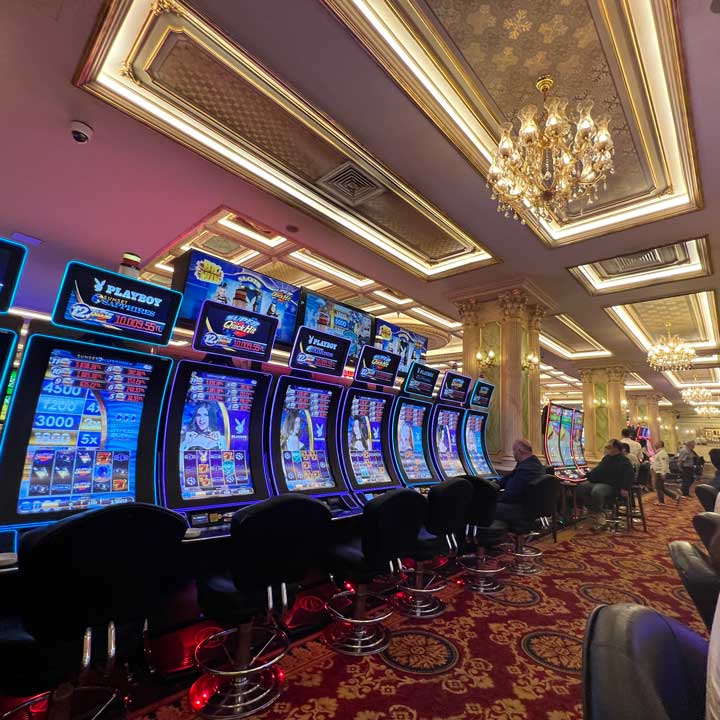
Gambling games have long captured the imagination of individuals around the world, becoming an integral part of both entertainment and culture. From the sparkling lights of Nevada to the immersive experience of online gaming, these games evoke thrill, danger, and sometimes even a sense of sentimentality. They are not just simply hobbies; they have woven themselves into the tapestry of human experience, influencing everything from film and songs to clothing and literature.
The appeal of casino games transcends the gambling aspect, tapping into broader themes of serendipity, risk, and social interaction. As players convene around a gaming table or rotate the wheel of fortune, they engage in an ancient ritual that connects with our collective desire for excitement and unpredictability. This fascination has led to the emergence of countless references in films, tracks, and gaming, showcasing how deeply entrenched these pastimes are in popular culture. Whether it is the intense drama of a classic heist movie or the colorful nightlife portrayed in recordings, casino games have created a substantial niche that reflects our bond with risk and reward.
Social Impact of Gambling Games
Casino games have played a crucial role in cultural aspects throughout the ages. Originating from ancient civilizations, games of chance were often connected to rituals or gatherings. For instance, early forms of these activities can be linked back to historic China and the Roman Empire, where dice games and wagering on outcomes were common pastimes. These games not only functioned as entertainment but also as means of connecting people, facilitating relationships among people within communities.
As cultures evolved, so did the complexity and organization of gambling games. The creation of official casinos in the 17th century, particularly in Italy, marked a significant shift in how games were viewed and structured. With designated spaces for gaming, the casino became a social hub where people from various backgrounds gathered. This evolution contributed to the validation of gambling, transforming it from a mere pastime into an organized industry that shaped economy and regulations.
The effect of casino games on popular culture cannot be understated. As they were popularized in literature and movies, games such as Texas Hold’em and blackjack became icons of chance, luck, and strategy. Iconic figures and narratives have developed around these activities, reflecting societal attitudes towards fortune, wealth, and vice. This fascination with gambling activities has permeated various forms of entertainment, cementing their place in the collective consciousness and linking them to broader cultural narratives throughout history.
Representation of Casino Games in Entertainment
Gambling games have long been a popular theme in different types of entertainment, reflecting both the fascination and intricacies of the world of gambling. Films such as Ocean’s 11 and Casino Royale portray characters who navigate dangerous scenarios, showcasing not only the appeal of the gambling environment but also the methods and decisions that come with playing popular games like poker and blackjack. These films often dramatize the excitement of winning and the potential repercussions of losing, encapsulating the perils involved in gambling.
Television shows have also explored the universe of casino games, often integrating them into the plot as a backdrop for story progression and tension. Series like Las Vegas depict the stories of gambling employees and customers, highlighting the dynamic, often chaotic energy of the gaming floor. Reality shows featuring intense gambling competitions further emphasize the fascination of casino games, drawing viewers into the drama and strategy involved in each round. Through these representations, media not only engages but also sparks conversations about fortune, skill, and the character of chance.
Video games have increasingly integrated gambling activities into their design, allowing players to simulate the thrill of gambling without financial risk. Titles within the realm of online gaming often include online slot machines, poker, and other casino favorites, creating an engaging environment that mirrors real-life gameplay. These virtual portrayals make casino games accessible to a worldwide viewer base, appealing to both gamblers and those who enjoy the thrill of virtual experiences. As a outcome, the representation of gambling activities in media continues to shape public perception and importance, highlighting their place in society and social context.
Impact of Casino Games on Society
Casino games have a significant effect on communities, affecting multiple aspects of culture and interpersonal behavior. They often function as a venue for social interaction, where people come together to enjoy a shared activity. Casino trips with friends or trips to casinos become group events that build connections and create shared moments. This communal aspect boosts the fun value of casino games, making them a favored choice for celebrations and leisure activities.
Additionally, gambling activities have been portrayed in numerous films, television shows, and written works, influencing perceptions and opinions towards gaming and gaming. Icons like James Bond competing in baccarat or the intense poker scenes in films have cemented these games in the collective imagination. This depiction often idealizes the lifestyle associated with gambling, attracting new players and influencing trends in both fashion and conduct. betting sites without GamStop These portrayals can ignite curiosity and lead to a deeper investigation of the intricacies of gambling.
However, there are also adverse consequences linked to the widespread appeal of casino games. The allure of quick monetary gain can lead to problem gambling and economic troubles for some people. The community must contend with these consequences, advocating for responsible gambling and awareness of the risks involved. Balancing the entertainment value of casino games with the potential for harm is crucial to ensure that they remain a beneficial aspect of our societal fabric.